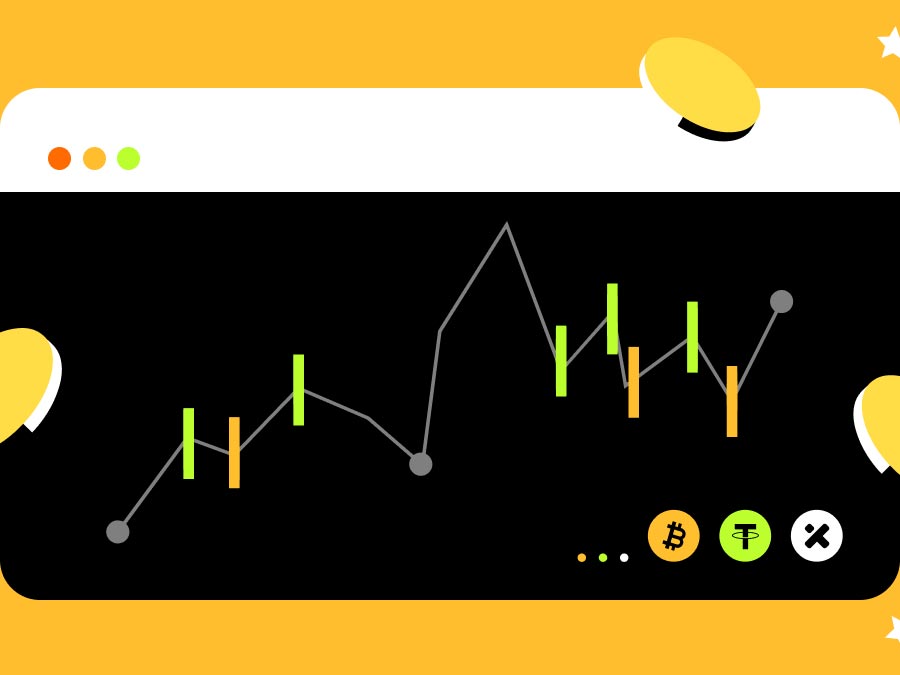Why Most People Aren't Suited for Crypto Contract Trading

Contract trading in the cryptocurrency market offers the potential for high rewards but comes with equally high risks. Many traders, especially beginners and even some experienced investors, often struggle with the complexities of contract trading. This article explores why most people in the cryptocurrency world are not suitable for contract trading and highlights the key challenges that make it a risky endeavor.
High Volatility and Market Unpredictability
One of the primary reasons contract trading is unsuitable for most people is the extreme volatility of the cryptocurrency market. Unlike traditional financial markets, crypto assets can experience massive price swings within minutes. While these fluctuations can provide opportunities for profit, they also make it highly unpredictable and difficult to manage risk effectively.
Leverage, which is commonly used in contract trading, amplifies both gains and losses. Many traders, attracted by the potential for large returns, overlook the fact that a small price movement against their position can lead to liquidation. This unpredictability makes it difficult for inexperienced traders to maintain control over their trades.
Psychological Pressure and Emotional Trading
Contract trading requires a high level of emotional control. The combination of leverage and market volatility can trigger extreme emotional reactions, such as fear, greed, and panic. Many traders fall into the trap of revenge trading after a loss, increasing their leverage in an attempt to recover quickly, only to incur even greater losses.
Moreover, the stress of monitoring trades in real time, the fear of missing out (FOMO), and the pressure to make quick decisions often lead to impulsive actions. Unlike spot trading, where holding an asset over time can mitigate losses, contract trading demands precise timing, which is difficult to master for most people.
Lack of Risk Management Knowledge
Effective risk management is critical in contract trading, but many traders fail to implement proper strategies. Key aspects of risk management include setting stop-loss and take-profit orders, maintaining a reasonable leverage ratio, and diversifying positions.
However, many retail traders either do not use stop-loss orders or place them too close to the entry price, resulting in frequent losses. Others use excessive leverage without considering the risks, leading to rapid liquidation of their positions. Without a solid risk management plan, contract trading becomes a gamble rather than a strategic investment.
Limited Understanding of Market Mechanics
Successful contract trading requires a deep understanding of market mechanics, including order types, funding rates, liquidity, and price manipulation tactics. Many traders enter contract trading without fully grasping these concepts, putting them at a significant disadvantage.
For instance, liquidation mechanisms on different exchanges can vary, and failing to understand how margin requirements work can result in unexpected losses. Additionally, market makers and whales often manipulate prices to trigger liquidations, further increasing the difficulty for retail traders.
High Fees and Hidden Costs
Contract trading involves various fees, including maker and taker fees, funding rates, and liquidation penalties. While some traders focus on potential profits, they often overlook these costs, which can quickly erode their capital.
Funding rates, which apply to perpetual contracts, can be particularly challenging for traders holding long-term positions. If the funding rate is unfavorable, traders end up paying fees periodically, reducing their profitability. Additionally, slippage and spread costs can further impact returns, especially in highly volatile conditions.
Influence of Market Sentiment and News
Cryptocurrency markets are highly influenced by news events, regulatory developments, and social media trends. Contract traders who do not stay updated on these factors often find themselves reacting too late to major market movements.
Furthermore, many traders make decisions based on speculation rather than concrete analysis, leading to irrational trading behavior. News-driven market movements can result in sudden price spikes or crashes, making contract trading even riskier for those who rely on guesswork rather than well-researched strategies.
The Role of Bots and Institutional Traders
The cryptocurrency market is dominated by institutional traders and algorithmic bots that execute trades at lightning speed. Retail traders using manual strategies often struggle to compete with these automated systems, which can manipulate order books and execute trades with precision.
Retail traders who rely on traditional technical analysis may find that their strategies are ineffective against high-frequency trading bots that exploit inefficiencies in the market. This further reduces the chances of success in contract trading.
Conclusion
While contract trading offers opportunities for high profits, it is not suitable for most people in the cryptocurrency world due to its high volatility, emotional pressures, complex market mechanics, and hidden costs. The majority of traders lack the necessary knowledge, risk management skills, and emotional discipline required to succeed in this field.
For those considering contract trading, it is essential to invest time in education, practice with demo accounts, and develop a solid trading plan. Otherwise, the risks associated with contract trading far outweigh the potential rewards, making it an unsuitable option for the majority of cryptocurrency traders.
-
Sign Up

OKX
OKX is a leading global digital asset trading platform offering spot and derivatives services for cryptocurrencies.
-
Sign Up

Binance
Binance is one of the world's largest cryptocurrency exchanges, offering spot, futures, staking, and a wide range of digital asset services.
-
Sign Up

Bybit
Bybit is a global cryptocurrency exchange specializing in derivatives, spot trading, and crypto-financial products.
-
Sign Up

Gate.io
Gate.io is a leading crypto exchange offering diverse trading options, low fees, and strong security since 2013.
